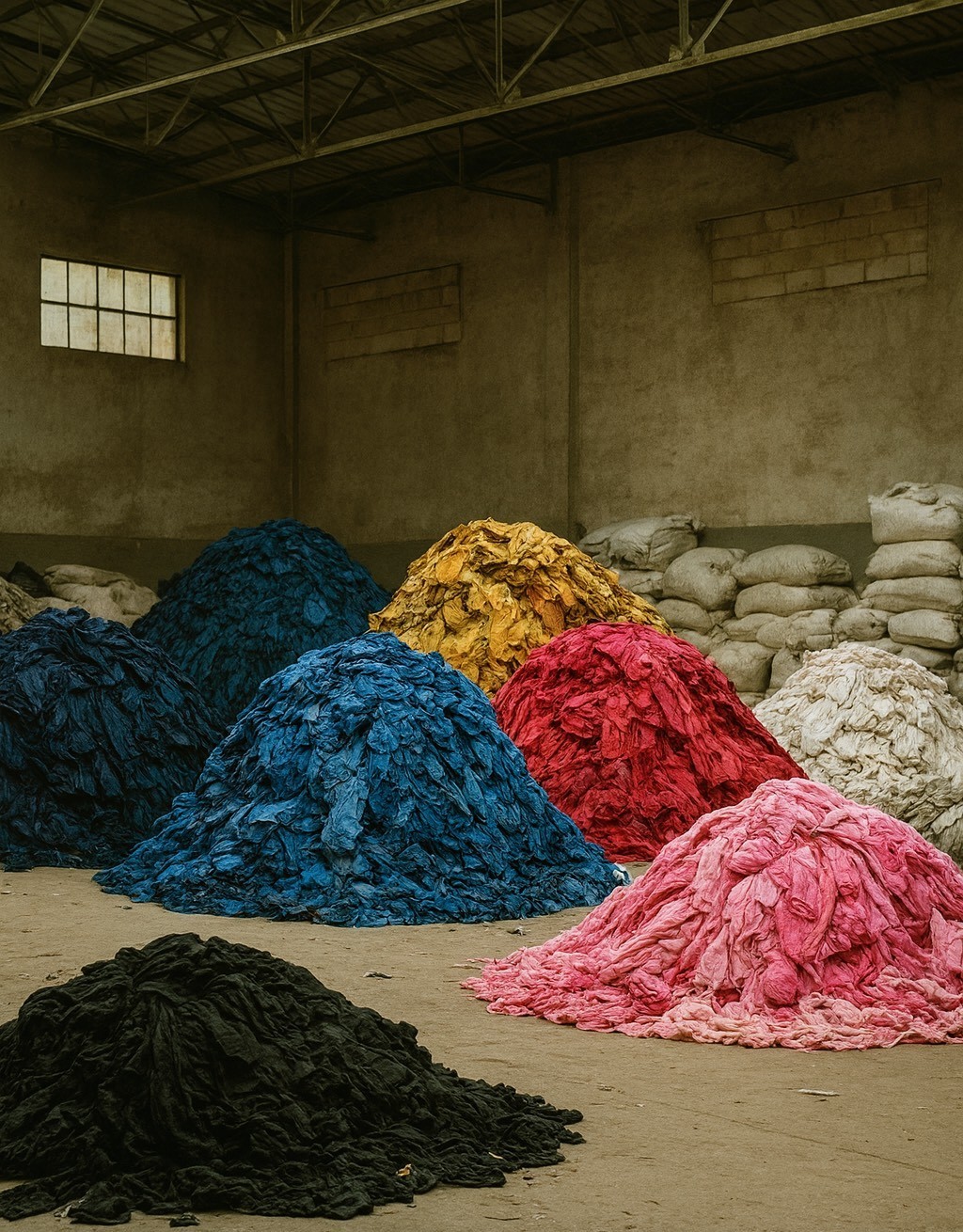In July, California’s textile recovery law reached a pivotal milestone when the American Apparel & Footwear Association (AAFA), National Retail Federation (NRF), and California Retailers Association (CRA) announced plans to establish the state’s first Producer Responsibility Organization (PRO).
The formation of a PRO marks a crucial step in bringing SB 707 – the Responsible Textile Recovery Act of 2024 – from policy into practice. With PRO applications due to the Department of Resources Recycling and Recovery (CalRecycle) by January 1, 2026, the implementation of this new law is officially underway.
What is SB 707?
California has always been at the forefront of cultural and industry transformation, setting the pace for progress and leading by example – whether in entertainment, technology, or the world of fashion. With SB 707, the state is once again setting a national standard, and this time for textile responsibility and circularity.
Signed into law in September 2024, SB 707 is the first U.S. legislation requiring apparel and textile producers – not governments or consumers – to take responsibility for the entire lifecycle of the products they sell in the state. Its scope is deliberate, assigning accountability to those with the greatest impact on textile inflows.
Under the law, the term producer follows a clear hierarchy. Priority responsibility lies with in-state manufacturers, brand owners, or licensees selling textiles into California. If none of these apply, accountability shifts to the trademark owner, exclusive licensee, importer, or, finally, to the in-state distributor or retailer. This tiered approach is designed to trace responsibility back to those who hold the most influence across a product’s lifecycle.
With the climate crisis intensifying and textile waste surging, this law arrives at a critical moment.
SB 707 balances ambition with equity, carving out exemptions for businesses with under $1 million in annual aggregate turnover and sellers exclusively selling secondhand products. Recognizing that creating impact at scale cannot be achieved by overburdening the smallest players, this threshold targets high-volume contributors, while encouraging smaller brands to innovate and prepare for future compliance.
At the heart of this law is the Extended Producer Responsibility (EPR) framework. Instead of placing the burden of managing textile waste on consumers or lawmakers, SB 707 requires producers to form or join a PRO to collectively manage collection, repair, recycling, and disposal programs across the state. Once approved by CalRecycle, the PRO will implement a statewide plan, set recovery targets, build collection networks, and lead educational outreach. The organization must also report transparently on its progress, demonstrating adequate financial responsibility. Noncompliance could lead to significant civil penalties of up to $50,000 per violation.
What It Means for Designers and Brands
For California-based designers and brands, SB 707 is a call to action. It invites a shift from business as usual, asking brands to design with foresight and intention, embedding circularity into every creative decision, and making durability, material choice, and repairability business imperatives. Because the law covers most apparel, accessories, and textiles, now is the time to review product lines, rethink sourcing, and integrate supply chain traceability.
For many, this legislation will inspire new collaboration opportunities – with recyclers, repair specialists, and technology innovators accelerating zero-waste systems. For others, it may spark the reimagining of entire business models rooted in repair, reuse, and longevity. Regardless of scale, SB 707 urges brands to audit current practices, operate with purpose, and join collective efforts to advance circularity.
For Out-of-State and Global Brands
For brands beyond California’s borders, SB 707 may still apply. Any brand selling textile products into the state must adhere to the law’s requirements, regardless of where the business is headquartered. This presents an opportunity to be proactive and get ahead of the curve. By reviewing internal operations, fortifying supply chains, building circularity into design and ensuring traceability at every stage, brands can demonstrate resilience and readiness for future compliance.
Early action can also look like joining industry discussions, supporting advocacy efforts, and staying current on evolving regulations. By stepping up early, brands can turn compliance into opportunity, building trust, sharpening their competitive edge, and leading the charge in circular fashion innovation.
The Global Shift Toward Circularity
California is not isolated in its approach. The state’s progress reflects a broader global movement toward circularity and producer responsibility. This September, the European Union adopted new rules mandating member states to implement EPR frameworks for textile and food waste within 30 months. Much like SB 707, the EU’s new legislation makes producers financially and legally accountable for products sold across its market.
Together, these new laws indicate an unmistakable shift: circularity is no longer optional – it is becoming a global mandate.
A New Chapter for Industry Accountability
Change at this scale comes with challenges. Adapting global supply chains, educating partners, and developing infrastructure remain hurdles to clear. But with the PRO formation underway, SB 707 represents more than just a policy update. It signals a new chapter of creative leadership and shared accountability, driving innovation across design, material science, and business strategy. Industry-wide leadership, collaboration, and transparency are now essential to progress.
Ultimately, the success of this new law hinges on the collective commitment of designers, producers, educators, and consumers, in California and beyond. With California once again leading by example, SB 707 has the potential to shape not just state policy, but a global blueprint for responsible and circular fashion.
For those interested in staying informed on SB 707’s implementation, updates from the newly formed PRO will be available here: http://eepurl.com/jjna7A.
Sources:
https://www.aafaglobal.org/AAFA/AAFA_News/2025_Press_Releases/Leading_Associations_Sign_MOU_Form_PRO_CA.aspx
https://leginfo.legislature.ca.gov/faces/billTextClient.xhtml?bill_id=202320240SB707
https://www.europarl.europa.eu/news/en/press-room/20250905IPR30172/parliament-adopts-new-eu-rules-to-reduce-textile-and-food-waste
https://www.voguebusiness.com/story/sustainability/eu-finally-adopts-epr-industry-reacts-extended-producer-responsibility
https://calmatters.digitaldemocracy.org/bills/ca_202320240sb707



